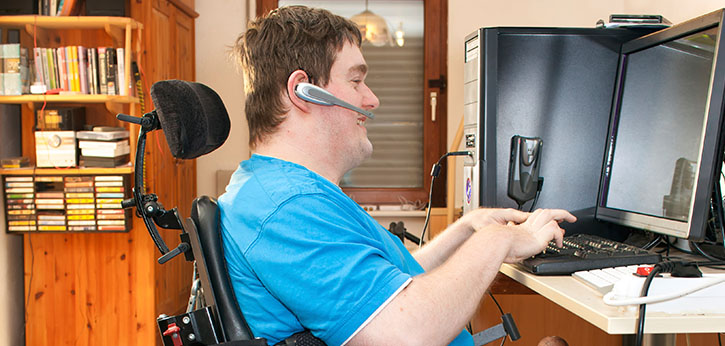The coronavirus pandemic has laid bare the inequalities in our country, and this is especially true for people with disabilities.
The Centers for Disease Control and Prevention reported in 2019 that people with disabilities make up nearly 26% of our population—1 in 4 Americans. Opportunity youth with disabilities, defined as young people between the ages of 16 and 24 who are both out of work and out-of-school, are at increased risk for homelessness, food insecurity, and the lack of other basic needs during this crisis.
During economic downturns like the one we are now facing in the U.S., people with disabilities are much more vulnerable. In the Great Recession of 2008, people with disabilities lost their jobs at three times the rate of people without disabilities. After the recovery, people with disabilities did not regain employment at the same rate as those without disabilities.
We are learning about increased threats to the civil rights and safety of people with disabilities of all ages. Recent actions by the U.S. Department of Labor’s Office of Federal Contract Compliance Programs (OFCCP) and by Ability One threaten to reduce the opportunities for people with disabilities to find employment and earn a competitive, living wage. Both OFCCP and Ability One have released notices suspending rules for businesses and nonprofits, respectively. These rules are intended to protect workers with disabilities; the suspensions remove those protections. The recently passed CARES Act allocates $25 billion in funding for transit and more than $1 billion for Amtrak, but does not include funding for the Section 5310 program that provides critical transportation services for people with disabilities when traditional transportation service is unavailable. Transportation is one of the top barriers faced by people with disabilities in finding and keeping a job. These are just some of the challenges to civil rights that people with disabilities face as a result of reactions to the pandemic.
In response to these pressing challenges, IEL will host a panel of youth with disabilities to elevate their voice and ensure that youth with disabilities are central to and leading conversations about the impact of the pandemic on their lives. Through a virtual Community Forum, we will provide an opportunity for youth with disabilities to define the challenges they are experiencing and witnessing, the strategies and solutions they are using to address those challenges, and the change that needs to happen so that allies and advocates for people with disabilities can work together in solidarity.
From the Youth Voices Community Forum, we will identify steps that we can all take as allies to ensure youth with disabilities are not disproportionately affected by the pandemic. Together, we can share our collective wisdom and voice to do what is right: ensure equal rights and opportunity for all people with disabilities.
